On October 2, 2021, a cinema in Wuhan, Hubei, was screening The Battle at Lake Changjin.
[People News] Some say that Trump is lifting a rock only to smash the whole world’s foot. That statement is only half right. Trump is indeed lifting a rock, but be patient—when the rock comes down, you’ll see it lands squarely on the Chinese Communist Party’s (CCP’s) foot.
With tariffs as high as 104% slashing directly at China’s export economy, the CCP is jumping in protest. On the afternoon of April 8, a spokesperson for the Ministry of Foreign Affairs dragged over a billion Chinese people onto the battlefield, declaring: “The Chinese people do not provoke, nor do we fear provocation,” and that China “will accompany [the U.S.] to the end.”
On April 4, Trump announced reciprocal tariffs globally, setting China’s rate at 34%. Most countries expressed willingness to negotiate trade deals with the U.S. in hopes of lowering tariffs. The CCP, however, uniquely retaliated, implementing a 34% counter-tariff on the U.S., adding 16 American entities to an export control list, listing 11 U.S. firms as "unreliable entities," suspending the import qualifications of six American companies, and imposing export controls on certain medium and heavy rare-earth products.
Trump bluntly said the CCP played the wrong card. On April 7, he issued an ultimatum: the CCP must withdraw its retaliatory measures by Tuesday, or he would raise tariffs another 50% and suspend all negotiations with China. In essence, the CCP had flipped Trump’s tariff table and escalated the U.S.-China standoff. Trump fired back by hammering China’s export trade.
On April 7, the CCP’s official mouthpiece People’s Daily published an article titled “The Sky Won’t Fall”, claiming that “U.S. tariff increases cannot crush China’s economy,” and that “China has the confidence and capability to withstand external shocks,” concluding that “the sky won’t fall.” But the stock markets told a different story—China’s A-shares plummeted dramatically, and it felt like the sky really was collapsing. The CCP urgently deployed state-backed funds to stabilize the market.
On the surface, it all looks aggressive—“Bravo, my country!” China’s nationalist “little pink” netizens celebrated wildly online with slogans like “Strike the U.S. while it’s crazy; kill the U.S. while it’s sick,” and “Let the U.S. collapse even more ferociously,” spreading delusional rhetoric across the internet.
Meanwhile, two influential bloggers posted suggestions for how the CCP could further retaliate against Trump. A WeChat public account run by senior Xinhua News Agency journalist Liu Hong, along with one named "Chairman Rabbit," proposed countermeasures such as suspending cooperation with the U.S. on fentanyl, significantly raising tariffs on U.S. agricultural products like soybeans and sorghum, banning U.S. poultry imports, and imposing tariffs on U.S. service exports to China.
Western left-wing media took the opportunity to throw cold water on Trump’s tariff strategy. The Wall Street Journal ran a piece titled “Wall Street Begins to Speak Out Against Trump’s Tariff Policies”. The New York Times discussed how Trump is "destroying America's greatness." The Economist used the cover story “Trump Is Making China Great Again” to grab attention, while the BBC mocked Trump’s “reciprocal tariffs” as a “big gift package” to China.
Just as the CCP and Western leftists were celebrating, one of the Chinese government’s favored economists, Zheng Yongnian—Dean of the School of Public Policy at The Chinese University of Hong Kong (Shenzhen)—sang a different tune. In his article “Trump Will Not Make China Great Again—What Matters Is ‘Economic Resilience’”, he wrote: “Although many people realize that trade wars or tariff wars have no winners—only losers—on domestic media, especially social media, there are still quite a few people who feel like we’ve ‘won big.’ This is very dangerous. If we think like this, we’ll be misled by the West, led by the nose, and ultimately make strategic mistakes. Using China to scare Trump is becoming more and more common in the West, whether in politics, business, academia, or policy research. People must clearly understand this. Trump will not make China great again—only we ourselves can make the nation great again.”
The article further stated: “Just as the half-century-long U.S.-Soviet Cold War demonstrated, the core of competition between two nuclear powers isn’t economic ‘nuclear bombs’ like the ones Trump uses, but long-term and sustained economic resilience. Countermeasures against the U.S. are both unavoidable and necessary, but our ultimate goal should be to build a highly resilient industrial system. Only such a system can ensure that in the long-term competition with the U.S., we not only remain undefeated but also achieve sustainable development and national rejuvenation.”
Though Zheng Yongnian analyzed the issue from the CCP’s perspective, the article undeniably touched upon the true aims of Trump’s tariff policy and the real economic weaknesses and dilemmas the CCP currently faces.
Trump's tariffs are not merely intended to address the U.S.-China trade deficit; they aim to restore America's industrial dominance, a status the U.S. held during World War II but has been significantly undermined by the Chinese Communist Party (CCP) due to decades of Western appeasement policies. Conversely, while the CCP has become a manufacturing giant through unfair competition and industrial espionage, its totalitarian political system diverges from economic principles, resulting in an unsustainable economic development model. With the added pressure of U.S. tariffs, the CCP now finds itself in a prisoner's dilemma.
The Trump tariff war represents a significant U.S.-China conflict that impacts the future of both nations. The escalating tensions between the two sides will inevitably lead to a hard decoupling of their economies and technologies, ultimately testing public sentiment and the advantages of their political systems. Trump's tariff policy is receiving strong support from the American working class. The employment situation in the U.S. in March was remarkably positive, and the economic outlook is not as bleak as suggested by left-leaning media. The fluctuations in the U.S. stock market are a necessary part of the journey to make America great again. Treasury Secretary Scott Pruitt informed conservative journalist Tucker Carlson that 10% of America's wealthy own 88% of the stocks and 88% of the market value. It is these American business leaders and tech elites who have invested heavily in China over the past few decades, inadvertently empowering the CCP and contributing to the challenges facing today's America. The pain experienced is not a direct result of Trump's tariffs, but rather a consequence of the CCP's infiltration into the U.S. economy, which is an inevitable process and cost associated with disentangling from the CCP's influence.
China's trade surplus is projected to approach one trillion dollars in 2024, with almost all of it coming directly or indirectly from the United States. This channel has been obstructed by Trump's tariffs, effectively crippling the export-driven economy that the Chinese Communist Party (CCP) relies on. Currently, China's economy is facing its most significant downturn since the reform and opening up, characterized by soaring unemployment, mounting local government debt, a struggling real estate market, spreading financial risks, overcapacity in manufacturing, and a rush of foreign capital and enterprises to withdraw...
In light of this economic situation, it is puzzling where Xi Jinping and the CCP derive their courage to challenge Trump's tariffs. Perhaps the spirit of resisting America and aiding Korea has been revived, signaling the onset of another economic 'Battle of Chosin Reservoir' in the 21st century. Thousands of small and medium-sized enterprises and unemployed individuals across the mainland are likely to become collateral damage in Xi Jinping's new era trade war and economic challenges.
(This article was first published by the People News)

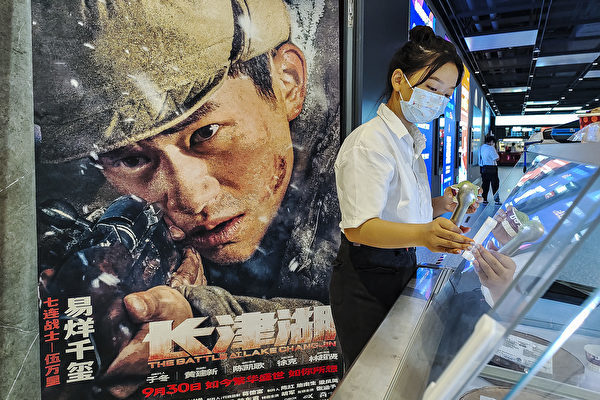
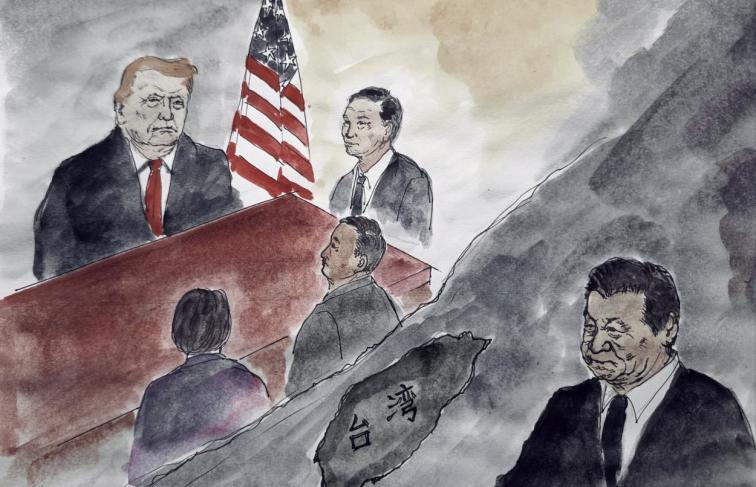
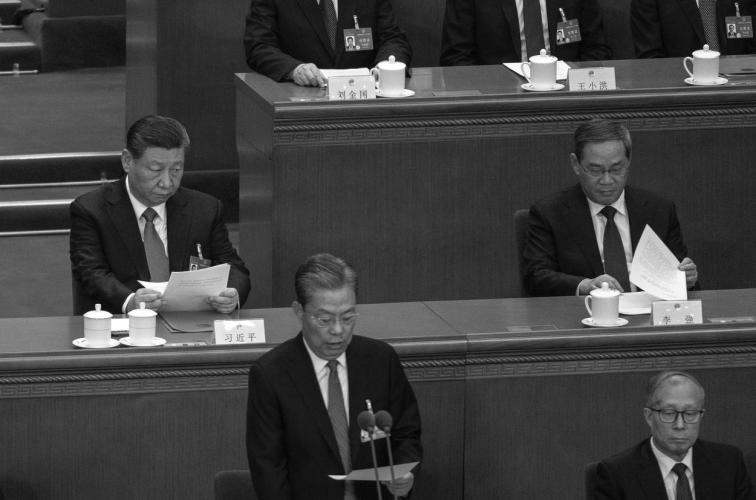

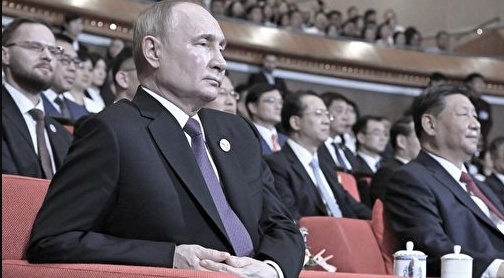
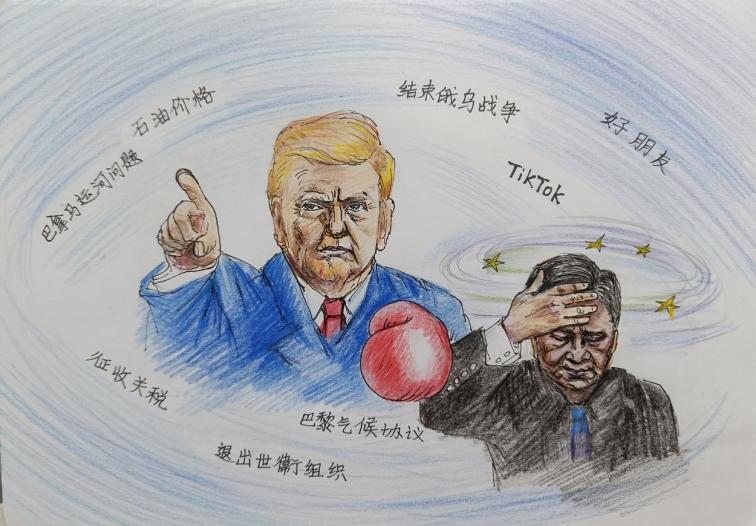
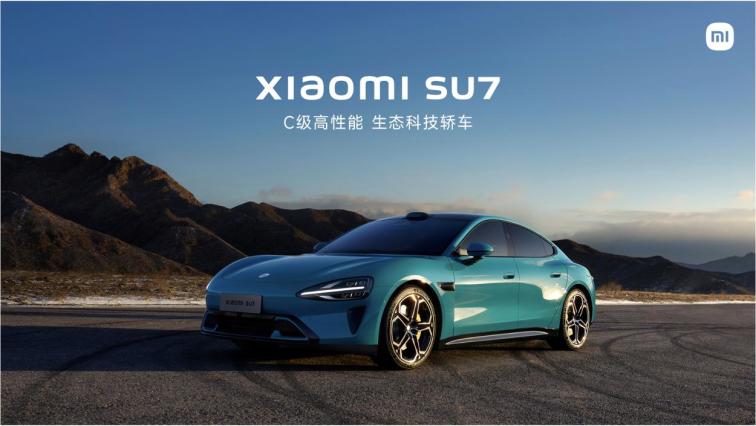
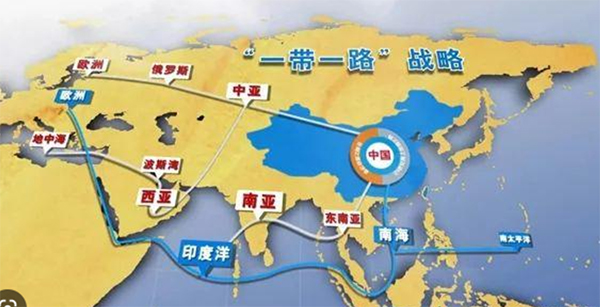

News magazine bootstrap themes!
I like this themes, fast loading and look profesional
Thank you Carlos!
You're welcome!
Please support me with give positive rating!
Yes Sure!